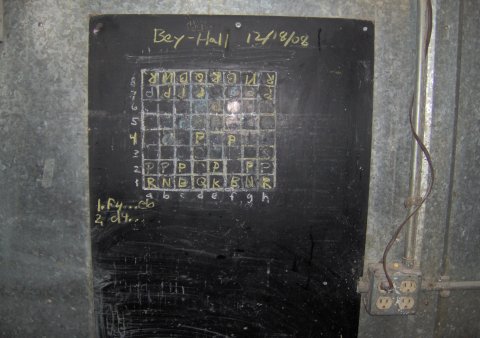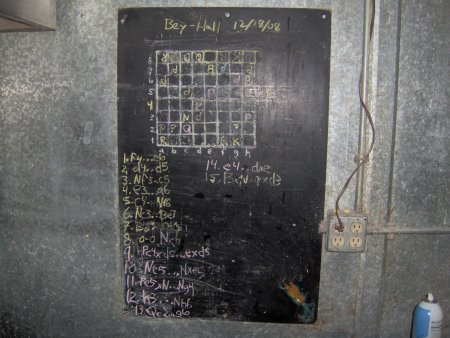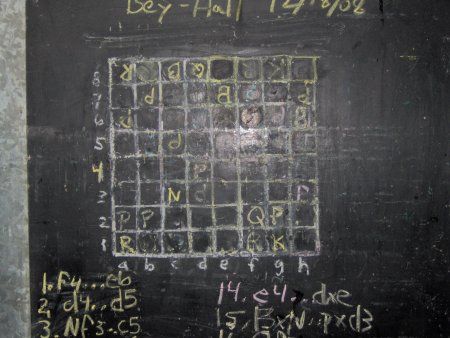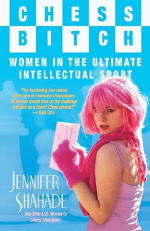Way back when, I posted about the blackboard at work which I’ve been using for chess games with a coworker on a different shift. Well, we’ve played several games since then (I can’t believe that the management hasn’t said anything about this appropriation of bakery resources this entire time).
In general, Mr. Hall has been beating me. I think that he’s won three, tied one, and lost another to me. In my defense, I tend to make my moves in the couple of minutes between getting off shift and going home to take a nap. If my brain weren’t so blown-out at the end of the day, I would be doing a bit better.
Here’s the current game. You can see in this photo my signature variation on the Bird’s opening.

It’s my strongest opening, with a center-pawn structure that rarely gets broken. Although Mr.Hall seems to have done just that.

We’re at a crux in the game right now. I’ve let him blow my entire pawn structure to heck in return for a rook/bishop+pawn exchange and a chance to ravish his king like a bottlenose dolphin.

Although, if history serves as an indication, my recklessness is going to prove my undoing by the time I return to work tomorrow.
On the subject of chess, I’ve been reading Chess Bitch by Jennifer Shahade (two time U.S. women’s chess champion).

It’s a feminist exploration of the role of women in professional chess.
Much of the first chapter explores the common argument that women aren’t common in professional chess because they aren’t smart enough for it.
Obviously Jennifer Shahade doesn’t condone this argument, but I feel there’s a lot of similarity between that sentiment and a similarly asinine opinion that floats around our circles frequently: there aren’t many women writing hard sci-fi because they aren’t smart enough.
It’s an argument that breaks easily into an ad hominem rebuttal: "Dudes with Aspergers think that people who don’t like the same things as dudes with Aspergers, aren’t as smart as them."
As I read the book, I’ve tried to widen the comparison between chess and sci-fi, and there aren’t as many common points as you would think. Chess masters seem to hit their peak around the age of 20, and sci-fi writers generally have to wait another fifteen years. From the stories in Chess Bitch, one would conclude it’s because the children have been groomed to the game by their parents from the earliest possible age.
You rarely hear of five-year olds getting a personal coach to teach them to write sci-fi.
But Jennifer Shahade makes me want to take chess more seriously. Reading the tales of struggle in the face of persecution and condescension, leads me to think that it’s more than just something to do on a disused chalkboard.